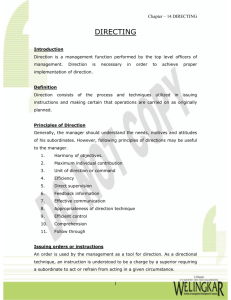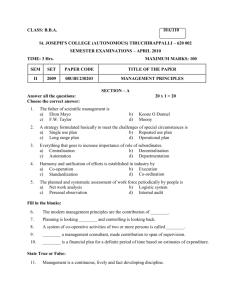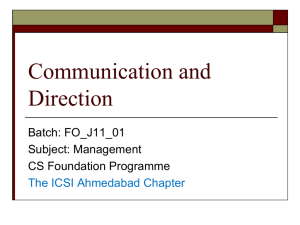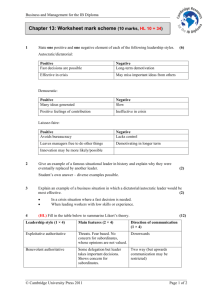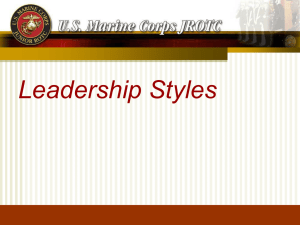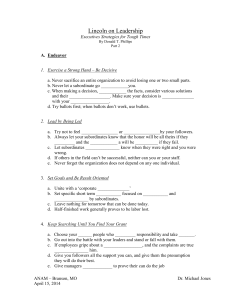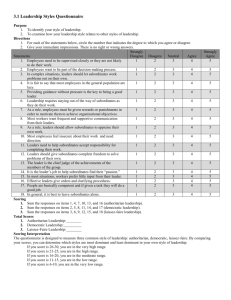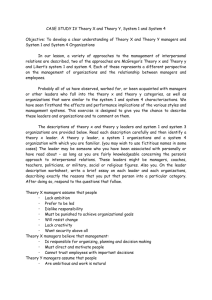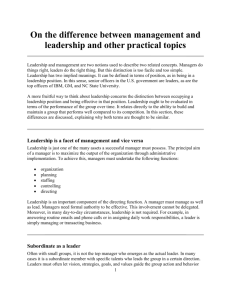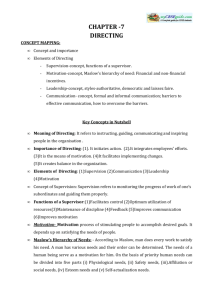File
advertisement
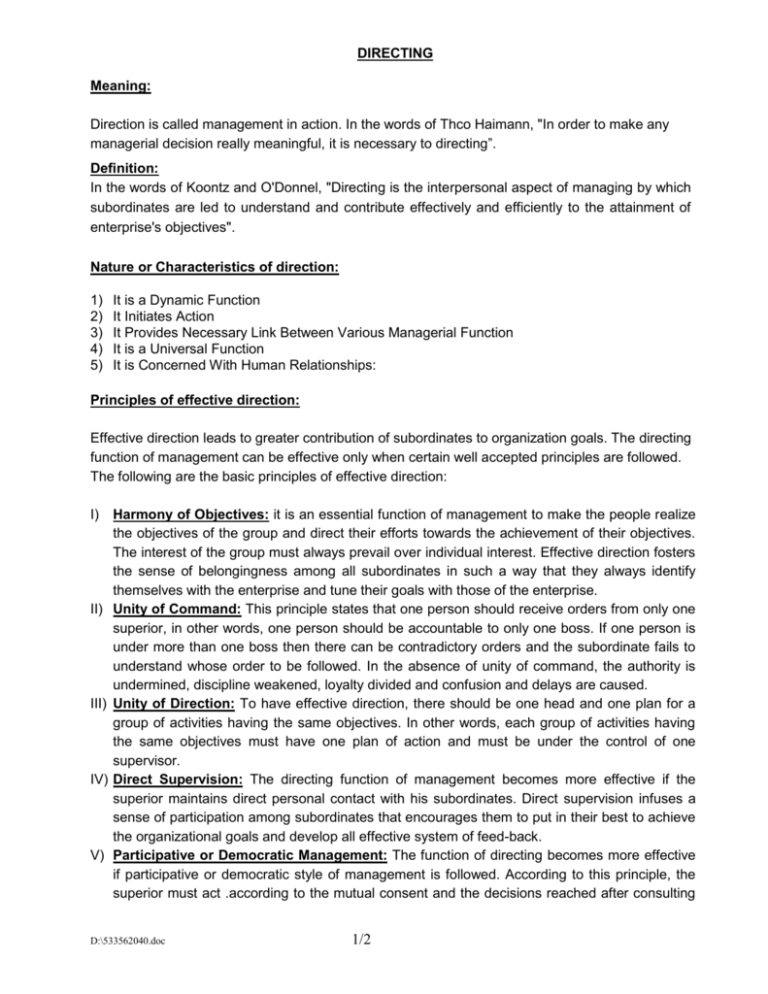
DIRECTING Meaning: Direction is called management in action. In the words of Thco Haimann, "In order to make any managerial decision really meaningful, it is necessary to directing”. Definition: In the words of Koontz and O'Donnel, "Directing is the interpersonal aspect of managing by which subordinates are led to understand and contribute effectively and efficiently to the attainment of enterprise's objectives". Nature or Characteristics of direction: 1) 2) 3) 4) 5) It is a Dynamic Function It Initiates Action It Provides Necessary Link Between Various Managerial Function It is a Universal Function It is Concerned With Human Relationships: Principles of effective direction: Effective direction leads to greater contribution of subordinates to organization goals. The directing function of management can be effective only when certain well accepted principles are followed. The following are the basic principles of effective direction: I) II) III) IV) V) Harmony of Objectives: it is an essential function of management to make the people realize the objectives of the group and direct their efforts towards the achievement of their objectives. The interest of the group must always prevail over individual interest. Effective direction fosters the sense of belongingness among all subordinates in such a way that they always identify themselves with the enterprise and tune their goals with those of the enterprise. Unity of Command: This principle states that one person should receive orders from only one superior, in other words, one person should be accountable to only one boss. If one person is under more than one boss then there can be contradictory orders and the subordinate fails to understand whose order to be followed. In the absence of unity of command, the authority is undermined, discipline weakened, loyalty divided and confusion and delays are caused. Unity of Direction: To have effective direction, there should be one head and one plan for a group of activities having the same objectives. In other words, each group of activities having the same objectives must have one plan of action and must be under the control of one supervisor. Direct Supervision: The directing function of management becomes more effective if the superior maintains direct personal contact with his subordinates. Direct supervision infuses a sense of participation among subordinates that encourages them to put in their best to achieve the organizational goals and develop all effective system of feed-back. Participative or Democratic Management: The function of directing becomes more effective if participative or democratic style of management is followed. According to this principle, the superior must act .according to the mutual consent and the decisions reached after consulting D:\533562040.doc 1/2 the subordinates. It provides necessary motivation to the workers by ensuring their participation and acceptance of work methods. VI) Effective Communication: To have effective direction, it is very essential to have an effective communication system which provides for free flow of ideas, information, suggestions, complaints and grievances. VII) Follow-Up: In order to make direction effective, a manager has to continuously direct, guide, motivation and lead his subordinates. A manager has not only to issue order and instructions but also to follow-up the performance so as to ensure that work is being performed as desired. He should intelligently oversee his subordinates at work and correct them whenever they go wrong. Importance of Direction: Directing various employees in an organization is an important managerial task. It is indispensable for achieving enterprise objectives. Effective direction provides the following advantages: 1) Initiates Action: Direction is required to initiate action. The function of planning, organizing, staffing etc., will be taken up only when direction is given to initiate them. Direction starts the actual work for achieving enterprise objectives. 2) Improves Efficiency: A manager tries to get maximum work from his subordinates. This will be possible only through motivation and leadership and these techniques are a part of direction. 3) Ensures Co-ordination: Direction helps in ensuring mutual understanding and team work. The individual efforts are directed in such a way that personal performances help in achieving enterprise objectives. The integration of various activities is possible through direction. 4) Helpful in Implementing Changes: A business operates in a changing environment. New situation develop every now and then. A proper system of motivation will help employees in taking up new challenges. 5) Provides Stability: Effective leadership, supervision and motivation will help in the smooth growth of an enterprise. A growing concern will provide stability to its activities. 6) Motivation: Motivation is an important element of direction. Motivation is a factor which encourages person to give their best performance and help in achieving enterprise goals. A strong positive motivation will enable the increased output of employees. A key element in direction is motivation. It helps in getting willing co-operation of employees. Every organization makes efforts that its employees contribute maximum for achieving goals. 7) Supervision: Direction involves giving instruction to employees for undertaking some work in order to see whether employees are doing the thing as per targets or not there is a need for supervision. In supervision all the activities of the employees are controlled and efforts are made to ensure proper achievement of targets. In case the performance is less than the targets then remedial steps are taken for improving the performance. So supervision is an integral part of direction. 8) Co-ordination: Direction will be effective only when there is a proper co- ordination. In direction, different persons are asked to perform specific task. In order to see that efforts of every employee are in the direction of achieving organizational goals there is a need to coordinate various activities. In the absence of co-ordination every person will go in his own direction without bothering for the enterprise target. When various activities are co-originated then overall enterprise objectives will be easily achieved. D:\533562040.doc 2/2
